- Home
- Gordon Korman
The Fugitive Factor Page 6
The Fugitive Factor Read online
Page 6
Aiden looked her straight in the eye. “I’ll tell you what we’re going to do about it. We’re going to go back to the hotel, pack up our stuff, and get out of there before she works her way up to our room!”
“Come on!” his sister countered. “All we have to do is tip off the cops. Nothing’ll happen to Chelsea once they realize her father’s making her do it.”
Aiden groaned in frustration. “You can’t be serious! We have to steer clear of cops, no matter what! How would you feel if we lost our chance to help Mom and Dad over something like this?”
She was chastened. “Okay. I just feel bad for her, that’s all. It’s frustrating to know you can help somebody, but you don’t dare try it.”
Aiden had another argument. “I don’t think we of all people should have anything to do with putting someone else’s father in jail.”
“This is different,” Meg insisted. “The guy deserves it. He’s a bully and a jerk.” A raindrop splashed off the tip of her nose.
The two ducked into a bus shelter just before a heavy cloudburst deluged the street. When a downtown bus happened along a few minutes later, it seemed natural to hop aboard and ride it back to the Royal Bostonian.
Meg sat in listless silence, watching the rain stream down the grimy window. Can’t help Chelsea, she thought. We’ll find out tonight if we can help Mom and Dad.
And suddenly, Mom and Dad were directly in her line of vision.
Meg goggled. Twenty Moms and Dads, as a matter of fact.
She was on her feet in a split second, slapping repeatedly at the signal to request a stop.
“Meg, what are you doing?” hissed a bewildered Aiden.
The bus driver glanced back to see who was ringing the bell over and over again. “I heard you the first time, kid.”
Meg continued to hit the bell. “Stop the bus! It’s an emergency!”
The bus lurched to a halt, and Meg hauled Aiden out into the rain.
“What’s with you?” he complained. “We’re getting drenched!”
“Look!” she shrieked.
In the display window of TV Town, two dozen monitors, large and small, angled and flat, regular and high definition, were all tuned to the same channel. The screens showed Drs. John and Louise Falconer, dressed alike in orange jumpsuits, seated at a bare table.
Aiden and Meg pushed their way through the crowd of people huddled from the rain in the recessed doorway of the store.
The voice of their father reached them like a homing signal the instant they burst inside.
“… we see what you’re doing. We understand it, and we love you for it. But it’s over. It’s time to give yourselves up.”
Aiden and Meg stared at each other, unable to believe their ears.
Then the camera focused on their mother, who looked thin and sleep deprived. “This is what we want you to do. Your future matters more than anything that’s happening to us. Our problems aren’t as important as your safety. Aiden, Meg, please! Find the nearest police station and turn yourselves in.”
The camera panned, and Aiden and Meg realized that, sitting beside their parents, was the hated FBI agent, Emmanuel Harris.
“Look who’s with them!” hissed Meg in a rage.
“Kids,” said Harris into the camera, “listen to your parents. They want what’s best for you. Everyone wants what’s best for you. All the laws that have been broken up to now — we can work that out. You have my personal guarantee that you’ll be treated fairly.”
“Lousy traitors!” snarled a man standing close by them in the store. “They should have fried the both of them, and their rotten kids, too!”
The CNN anchor returned to the screen. “You’ve been watching a dramatic plea from convicted traitors John and Louise Falconer, reaching out to their runaway children to give themselves up.”
Then, shockingly, the screen filled with still images of Aiden and Meg — the mug shots from their arrival at Sunnydale Farm.
Observation #1: They looked very different now. Most of this was on purpose. Meg’s long hair was cut short and bleached blond. Aiden, who was fairer, had dyed his hair jet-black. The kids were thinner, too, and stress and hardship had etched worry lines into their faces. The pictures were eight months old, but the people in them appeared at least two years younger.
Observation #2 (much scarier): They were still all too recognizable, especially in a crowd of shoppers looking at the Sunnydale photographs projected onto a sixty-inch plasma screen.
“Oh, my God!” A frail elderly woman stood gawking at them. “It’s you! You’re those kids!”
The message flashed between brother and sister at tachyon speed: Run!
By the time heads turned to follow the woman’s pointing finger, the Falconers were twin blurs blasting out through the crowd still huddling in the doorway. The blowing rain drenched them as they tore along the sidewalk.
With a sinking heart, Aiden realized that, because of the weather, they were virtually the only pedestrians on the street. If anyone heeded the old lady’s warning, the Falconers would be as difficult to spot as a pair of polar bears.
Of course, it worked two ways. If somebody was after them, that would be obvious, too.
Aiden risked a backward glance. “Nobody’s chasing us!”
“Yeah!” puffed Meg. “Because they’re all on the phone to the cops!” She steered him through a narrow alley, and they pounded down cement stairs to an underground T-station. They boarded the first train that came along, without knowing where it was headed. As long as it put distance between them and TV Town, it had to be the right direction.
Meg shivered in her wet clothes and tried to sink into her seat. “Is it just me,” she whispered, “or is everybody looking at us?”
“I think it’s only because we’re soaked,” Aiden murmured back.
“What are we going to do?” she persisted. “Our pictures were just on national TV! That woman recognized us! Other people will, too.”
Aiden tried to be big brotherly, but it was clear that he was also badly shaken. “Take it easy.”
But in spite of all assurances, Meg understood that the rules of this cruel game had changed once again. They were now exposed. From this moment on, the enemy could be anyone with a sharp eye, a good memory, and a TV set.
* * *
In the small office of Arrow Travel, Jane Macintosh reached for a tissue and blew her nose. Her eyes were still glued to the television in her waiting area, where the couple she had vacationed with nine years before had just issued an emotional plea to their fugitive children.
The same children she’d just agreed to harbor and help. Barely an hour had passed since they’d left her office. It had seemed so sensible then — so much the right course of action.
But now, with their distraught parents begging for their safety, keeping them out in the world, with danger all around them, felt like the worst kind of madness.
What on earth was she going to do?
Five o’clock found the Falconers in the back row of the darkened planetarium, watching a red giant star go supernova for the fourth time.
“If that thing explodes once more,” Meg murmured, “my head is going with it.”
But Aiden had insisted that this was the best place to be on the day that their faces had been telecast to millions. Here it was dark, and people were looking up instead of at one another. There were a lot of kids around, too — field trips and day camps — so two more just blended into the scenery.
The decision had been made hours earlier that the Royal Bostonian was history for them. It was just too risky to return to a place where their faces were known, and any desk clerk or bellhop might have been watching CNN that morning.
“I give us twelve hours before we start stinking again,” Meg predicted darkly. “Those extra clothes were all we owned in this world.”
“What are you complaining about?” Aiden mumbled. “I cut a million acres of grass to earn the money for that stuff. And I’ve got
the blisters to prove it.”
“In a way we were lucky,” Meg decided. “If we’d missed that broadcast, we’d have had no idea that our pictures were on national TV — not until the cops grabbed us up.”
Sitting beside her in the dim light, chilled by damp clothes and too much air-conditioning, Aiden shivered. “That’s what Mom and Dad said they want — us with the cops, I mean.”
She shrugged it off. “What did you expect them to say with J. Edgar Giraffe in there with them? I never thought I’d have to look at his ugly face again!”
Oh, how Aiden envied Meg’s view of life! In her eleven-year-old world, everything was black and white, and her loyalty was absolute. For Aiden, nothing was ever so straightforward.
“They looked sincere to me, and also pretty upset about us,” he mused. “All that stuff about our safety being more important than anything — you’ve got to admit that sounds like something they’d say.”
She stared at him. “What are you talking about? They don’t want us to give ourselves up! We’re their only hope! Without us, who’s going to prove they’re innocent?”
Aiden was silent. It was something he would never mention to his sister, a thought so awful that he felt like a monster for even allowing it to cross his mind: What if they weren’t innocent? What if John and Louise Falconer had been found guilty because they were guilty?
What are you — crazy? This is Mom and Dad! Of course they’re innocent!
And yet the nagging doubt would not leave him: What if Mom and Dad wanted their kids to stop looking for the evidence that would prove their innocence because there was nothing to find?
No-o-o-o-o!!!
Meg was regarding him with alarm. “Wait a minute — you’re not seriously thinking about turning ourselves in?”
Aiden straightened his back and set his jaw. “No, I’m not.” He checked the luminous dial of his watch. “Come on. It’s time to go to Aunt Jane’s.”
All the way in the taxi, Aiden watched the rear-view mirror and the darting eyes of the driver. Was he checking the traffic or his two passengers, who perhaps looked familiar?
Does it count as being paranoid if everyone really is out to get you?
Aunt Jane’s apartment was in nearby Brookline. Aiden had worked at a dozen buildings just like this one in his three days with the lawn crew — low-rise redbrick apartment houses on well-kept tree-filled properties.
Meg pressed the buzzer marked 3C, MACINTOSH, and they started up in the elevator.
Aiden could tell that something had changed the instant Aunt Jane opened her door. Her expression was somehow wrong. Sad. Even — guilty?
And then he saw, standing in the hallway behind her, a man in a blue uniform shirt with a gold badge on the pocket.
“Meg — run!”
He was amazed at how fast the cop burst into action behind Aunt Jane. It was like he’d been fired from a cannon.
Meg scrambled down the steps, Aiden hot on her heels.
Aunt Jane was crying now, her sobs echoing in the stairwell: “Please forgive me! This is what your parents want for you! I’m so sorry!”
Meg hit the second-floor landing and wheeled to take the next flight. An instant later, Aiden hurled himself around the banister. Through the corner of his eye, he saw that the cop was only a few steps behind him.
“Give it up, kid!” the officer puffed.
It lent Aiden’s feet wings.
All at once, he heard his sister gasp. She stopped so suddenly that he bumped into her, sending her sprawling headlong.
“Meg!”
Her forward momentum propelled her out and away from the stairs, and he could only watch in horror, unable to reach her. She was about to fly to a terrible crash at the bottom.
And then he was there, the figure who had made her freeze — a second cop starting up from the ground floor. Miraculously, he caught her and held on, the officer and his fleeing felon. Rescue and capture in a single instant.
Aiden hesitated.
His sister did not. “Go!” Anyone else would have been too shaken to think. But not Meg Falconer. “It’s all on you now!”
A hand from behind clamped hard onto Aiden’s shoulder.
He twisted free, scrambling over the banister and dropping to the lobby floor. He was outside in a flash, pounding down the sidewalk, relieved to see there was no more police presence.
The last thing he heard before the heavy door swung shut was his sister’s firm voice: “If you come back for me, I’ll break every bone in your body!”
Aiden had never run so far or so fast in his life. Propelled by his sister’s words as much as fear of pursuit, he put one foot in front of the other and repeated the process with no regard to aching legs or burning lungs.
On the next block, he passed a parked squad car and took note of the markings: TWELFTH PRECINCT. In spite of everything, he couldn’t bring himself to feel anger toward the Brookline police. One of their officers had probably saved Meg from a broken neck.
Meg.
The reality began to sink in. His proud, spirited little sister was in custody. Amid all the terrible things that had happened to Mom and Dad and the Falconer family, the one bright spot had always been that he was with Meg.
Now that was gone, too.
He forced the lump out of his throat. It was slowing him down.
* * *
The handcuffs were on the loosest possible setting, but the metal still grabbed her flesh. When Officer Jankowski finally uncuffed her in the small interrogation room, it took a lot of rubbing to get the circulation back in her wrists.
“Sorry, kid,” Jankowski told her. “Procedure.”
Meg said nothing. The experience of her parents had given the entire family an intense mistrust of the judicial system.
“Your brother — he must be a track star or something. We’ve got a lot of personnel in that neighborhood, but he’s gone with the wind.”
She had resolved to give the police no response whatsoever, but her pride was hard to suppress.
“You see, you’re not supposed to be smiling,” Jankowski chided. “Your brother — he’d be a lot better off if he was in here with you, safe and sound. You’d be doing him a big favor if you’d just tell us where to find him.”
“I don’t know where he is.”
“Fair enough. So what’s your best guess? Any favorite haunts? Friends in town he might reach out to?”
“Yeah, one,” said Meg bitterly. “She sold us out to the cops.”
“Listen.” Officer Jankowski was growing a little less patient. “I know this may be hard for you to accept, but we’re the good guys. Whatever you kids have done in other places, you’re squeaky clean in the Commonwealth of Massachusetts.”
Meg pounced on this. “I’m not under arrest?”
“You’re in protective custody. We’re holding you until a gentleman from Washington, DC, can come and pick you up.”
Meg felt her blood run cold. A gentleman from DC.
Did Jankowski mean J. Edgar Giraffe himself, Agent Emmanuel Harris?
If so, Meg was about to be handed over to the man who had destroyed the Falconer family.
* * *
Agent Harris was in Starbucks, in search of the only decent coffee in Thomaston, Florida, when the call came through on his cell phone. One of the two Falconer kids, the daughter, was in police custody in Brookline, Massachusetts.
“What about the boy?” he demanded. “Aiden? Do they have a line on him? Those two stick together. He can’t be far away.”
“It looks like he gave them the slip,” his Washington assistant reported. “They’ve been pounding the pavement for four hours, but no luck.”
Harris almost choked. “They’ve had her for four hours, and you’re telling me now?”
“They just let us in the loop,” came the reply. “The official notification went to Juvenile Corrections.”
“Juvenile Corrections?” Harris barked in the face of the stunned baristo, who was
holding out his triple espresso. “Those are the nitwits who came up with the brainstorm to put two innocent kids on a prison farm!”
He took note of a wounded air in his assistant’s tone. “So will you be flying up there tonight?”
Harris checked his watch and snorted in disgust. “I would have, if somebody had told me four hours ago. It’s too late to make the last flight now.” He snatched up his coffee and downed half of it in a single gulp. “Tell them I’ll be on the first plane tomorrow.”
* * *
Lieutenant Helen Tannahill was the third-watch commander at the twelfth precinct in Brookline. Coming on shift at midnight, she was used to walking in on all sorts of work in progress. So she wasn’t surprised when she glanced through the one-way glass into interrogation room 3 and saw a young girl, her head on the table, fast asleep.
She looked questioningly at a passing officer. “Runaway?”
“You could say that,” the man replied. “That’s one of the Falconer kids — you know, the parents got life.”
Now the lieutenant was surprised. “Yeah? How did we end up with her?”
“They had a family friend in town. Tipped us off. With friends like that, huh?”
“Wasn’t there a brother?” the lieutenant asked.
“He got away from us.”
Tannahill groaned. “That’ll read well in the papers.”
The officer shrugged. “It’s not our case, really. We’re just holding her for federal Juvenile. They’re picking her up in the morning.”
The lieutenant glared at him. “And everybody here thought it was just fine to leave her there all night, falling asleep on her face?”
He looked embarrassed. “Aw, Helen, we couldn’t put her in a cell. The kid’s only eleven.”
The lieutenant was disgusted. “Who thinks for you when I’m off duty? Take her up to the crash pad and lock her in from the outside. At least it has a cot.”
“It’s not regulation,” the officer warned.
“Neither is she,” Tannahill snapped. “Make her comfortable.”

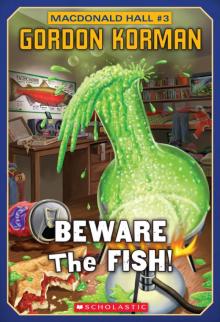 Beware the Fisj
Beware the Fisj Slacker
Slacker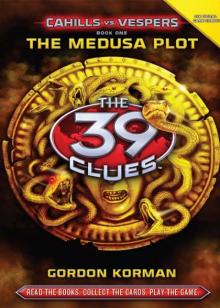 The Medusa Plot
The Medusa Plot This Can't Be Happening at MacDonald Hall!
This Can't Be Happening at MacDonald Hall!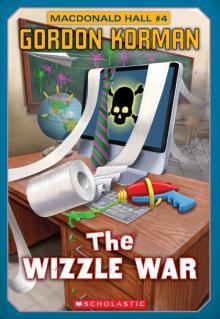 The War With Mr. Wizzle
The War With Mr. Wizzle The Emperor's Code
The Emperor's Code Zoobreak
Zoobreak The Danger
The Danger Unsinkable
Unsinkable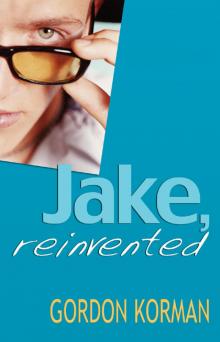 Jake, Reinvented
Jake, Reinvented No More Dead Dogs
No More Dead Dogs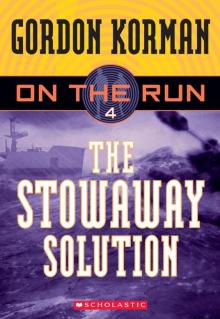 The Stowaway Solution
The Stowaway Solution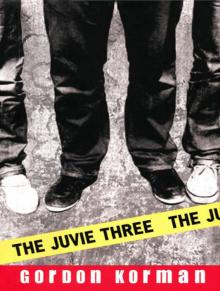 The Juvie Three
The Juvie Three The Climb
The Climb Criminal Destiny
Criminal Destiny Hideout: The First Adventure
Hideout: The First Adventure Flashpoint
Flashpoint Swindle
Swindle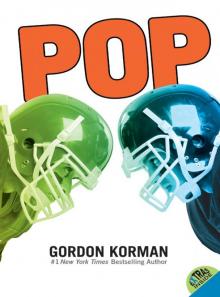 Pop
Pop The Rescue
The Rescue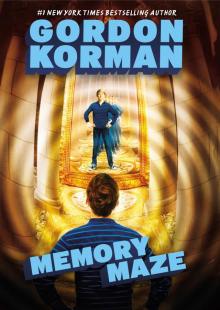 Memory Maze
Memory Maze The Sixth Grade Nickname Game
The Sixth Grade Nickname Game Vespers Rising
Vespers Rising Collision Course
Collision Course The Abduction
The Abduction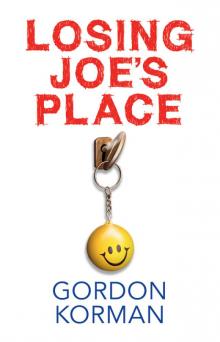 Losing Joe's Place
Losing Joe's Place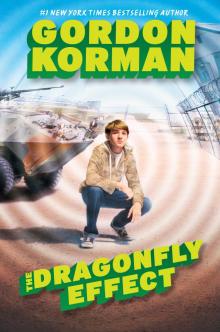 The Dragonfly Effect
The Dragonfly Effect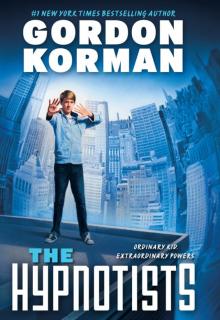 The Hypnotists
The Hypnotists Survival
Survival Lights, Camera, DISASTER!
Lights, Camera, DISASTER! Payback
Payback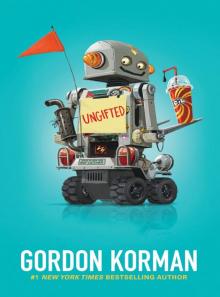 Ungifted
Ungifted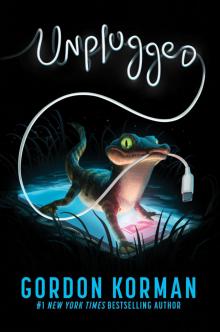 Unplugged
Unplugged Framed
Framed Supergifted
Supergifted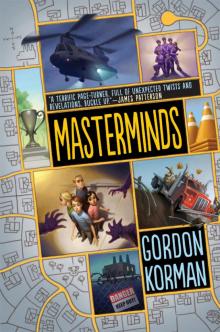 Masterminds
Masterminds Jackpot
Jackpot Don't Care High
Don't Care High The Deep
The Deep Go Jump in the Pool!
Go Jump in the Pool! The Contest
The Contest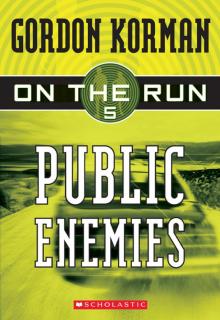 Public Enemies
Public Enemies Hideout: The Second Adventure
Hideout: The Second Adventure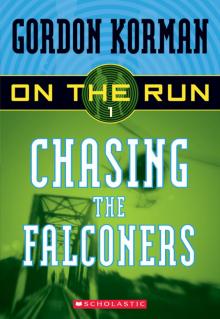 Chasing the Falconers
Chasing the Falconers One False Note
One False Note Shipwreck
Shipwreck Jingle
Jingle Unleashed
Unleashed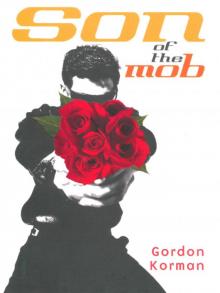 Son of the Mob
Son of the Mob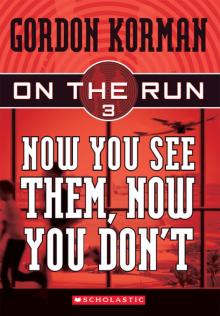 Now You See Them, Now You Don't
Now You See Them, Now You Don't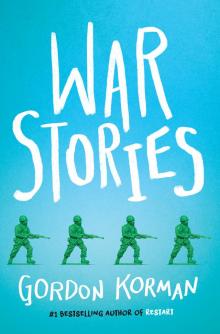 War Stories
War Stories Schooled
Schooled Hunting the Hunter
Hunting the Hunter The Zucchini Warriors
The Zucchini Warriors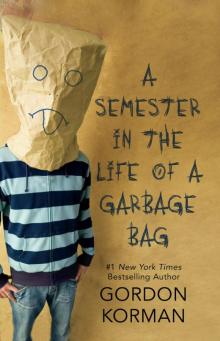 A Semester in the Life of a Garbage Bag
A Semester in the Life of a Garbage Bag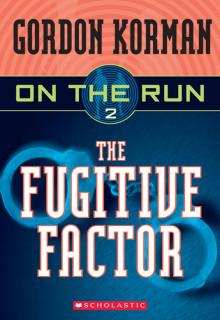 The Fugitive Factor
The Fugitive Factor Born to Rock
Born to Rock The Summit
The Summit Showoff
Showoff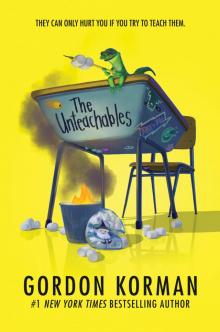 The Unteachables
The Unteachables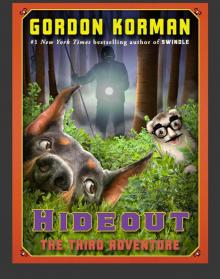 The Third Adventure
The Third Adventure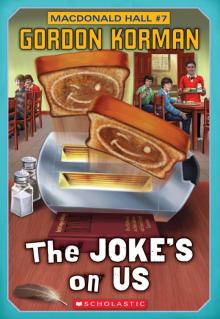 The Joke's on Us
The Joke's on Us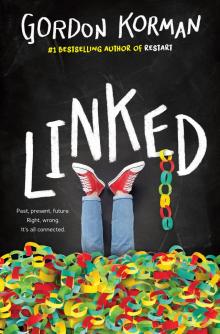 Linked
Linked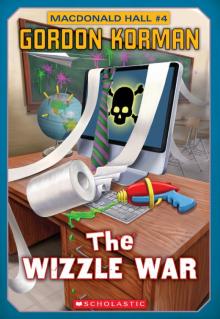 The Wizzle War
The Wizzle War The 6th Grade Nickname Game
The 6th Grade Nickname Game The Second Adventure
The Second Adventure The First Adventure
The First Adventure![39 Clues : Cahills vs. Vespers [01] The Medusa Plot Read online](http://i1.bookreadfree.com/i2/04/10/39_clues_cahills_vs_vespers_01_the_medusa_plot_preview.jpg) 39 Clues : Cahills vs. Vespers [01] The Medusa Plot
39 Clues : Cahills vs. Vespers [01] The Medusa Plot